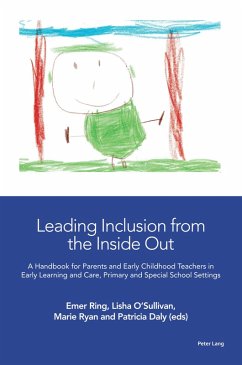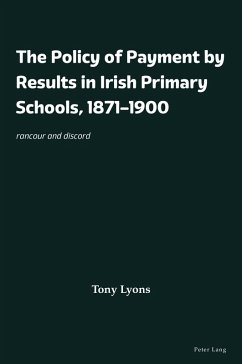
Working with and against Shared Curricula (eBook, PDF)
Perspectives from College Writing Teachers and Administrators
Versandkostenfrei!
Sofort per Download lieferbar
Statt: 89,30 €**
73,95 €
inkl. MwSt.
**Preis der gedruckten Ausgabe (Gebundenes Buch)
Weitere Ausgaben:

PAYBACK Punkte
37 °P sammeln!
Working with and against Shared Curricula: Perspectives from College Writing Teachers and Administrators explores the complexities surrounding the expanding use of shared curricula-syllabi and assignments intended to work universally, for all teachers and all students within a given writing program. Chapters in this collection offer the experiential accounts and research-based arguments needed to prepare teachers and administrators to respond to calls to scale up writing programs for delivery by contingent instructors, in online courses, or at distant sites. Speaking from a variety of perspect...
Working with and against Shared Curricula: Perspectives from College Writing Teachers and Administrators explores the complexities surrounding the expanding use of shared curricula-syllabi and assignments intended to work universally, for all teachers and all students within a given writing program. Chapters in this collection offer the experiential accounts and research-based arguments needed to prepare teachers and administrators to respond to calls to scale up writing programs for delivery by contingent instructors, in online courses, or at distant sites. Speaking from a variety of perspectives and institutional locations, these authors grapple with questions increasingly common in writing programs: In what ways do shared curricula forward noble goals, such as reducing workload for teachers or ensuring an equitable educational experience for all?; In what ways do shared curricula undermine teacher efficacy and student learning?; When syllabi and assignments are exported from one location to another, what contexts are gained, lost, or changed in the process? In the end, what emerges from this collection is not a clear or simplified argument either for or against shared curricula and pre-designed courses. Instead, readers gain a nuanced picture of both the affordances and limitations of these instructional models for writing programs, and their potential impacts for teachers and students. By exploring the lived experiences, material conditions, political economies, and ideological conflicts of shared curricula environments for multiple stakeholders, this collection serves as a thoughtful interrogation of scalability in writing instruction.
Dieser Download kann aus rechtlichen Gründen nur mit Rechnungsadresse in A, D ausgeliefert werden.













